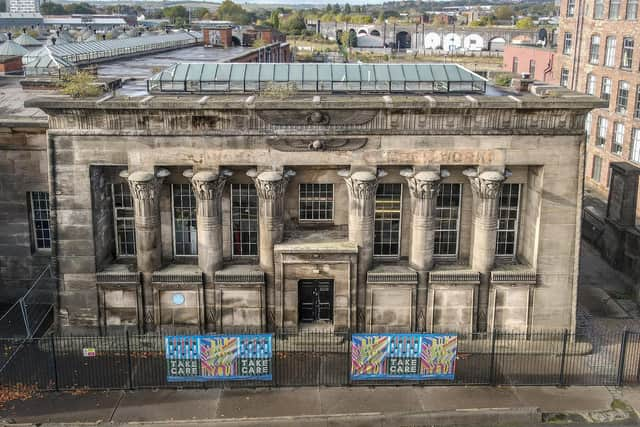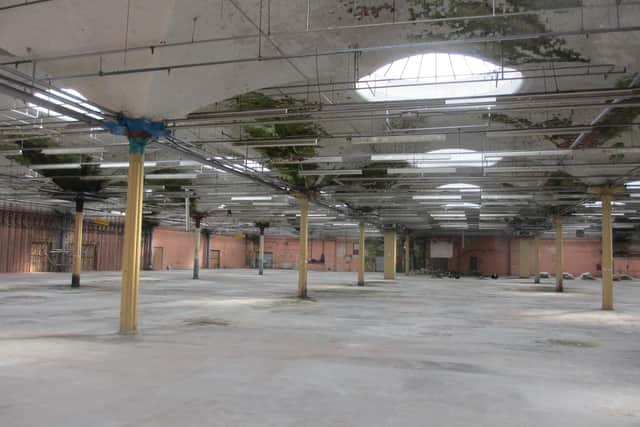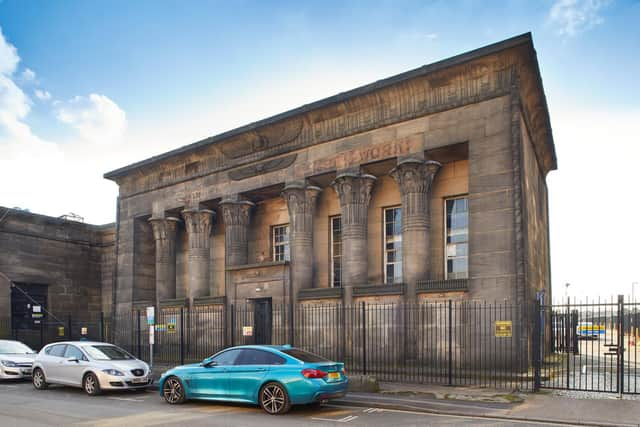Temple Works: Grade I-listed Leeds mill receives major funding boost to bring British Library North project to life
Temple Works in Holbeck dates back to 1840 and is Grade I-listed - yet has been empty for years amid uncertainty about the former flax spinning mill's future.
The new Culture Recovery Fund grants will enable developers to push ahead with plans to convert the Egyptian-inspired building into the home of the British Library in the north.
Advertisement
Hide AdAdvertisement
Hide AdThe mill's fate was up in the air after fashion house Burberry pulled out of a highly-anticipated deal to move manufacturing to Temple Works in 2018. The brand later sold 10 acres of land it owned, bringing an end to plans for a weaving facility where their iconic trench coats would be produced.


Temple Works was purchased in 2017 by property company CEG, who have committed to restoring it - and it was then earmarked as a suitable northern outpost for the British Library. CEG bought the site for just £1 at auction.
The new investment will help fund urgent repairs, as the mill has been derelict since it was last used as an arts centre in 2009.
£636,000 from the Heritage Stimulus Fund will go towards work to make the roof safe, and £400,000 from Historic England's Yorkshire regional pot will subsidise restoration of the Counting House, with its iconic Egyptian facade, in order for it to become a showcase room for the British Library plans.


Advertisement
Hide AdAdvertisement
Hide AdTemple Works was once one of the world's largest mills, and its first owners, the Marshalls, hoisted sheep onto the roof to graze on grass grown to maintain humidity in the building - reportedly to stop the flax from breaking - creating a spectacle that drew visitors from far and wide.
The Counting House was the office used by the managers, board members and clerks.
It has been on the Heritage At Risk register since 2000.
Historic England chief executive Duncan Wilson said: “We are thrilled to provide funding from the Culture Recovery Fund and Historic England towards the repair of Temple Works, an instantly recognisable building which was an important part of Leeds’s industrial past and is set to play a key role in its future. It’s exciting to see the possibilities for Temple Works taking shape, highlighting the amazing potential of historic mills in Yorkshire to drive economic and social benefits for the region.”


British Library chief executive Roly Keating added: “We are delighted that the Culture Recovery Fund and Historic England are providing vital funding to support urgent repairs to the historic Temple Works mill in Leeds. The British Library has major ambitions to expand and enrich our offering to audiences across the north of England and this funding is not only an important step towards securing the future of Temple Works, but also enables us to further explore the potential for the site as a home for the British Library in Leeds.”
Advertisement
Hide AdAdvertisement
Hide AdLeeds City Council has also invested £5million in stabilisation work as part of the regeneration of the building.
It last had a permanent occupant around 20 years ago, when mail order catalogue business Kay & Co operated from the site.
Developers CEG intend to make Temple Works a focal point for the wider revival of the South Bank area.
